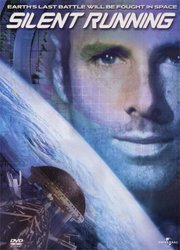The vault, which will be in the sandstone mountain on Spitsbergen (part of the Svalbard archipelago, about 966km from the North Pole), will be designed to withstand global catastrophes like nuclear war or natural disasters such as non-localized NEO impacts. Permafrost will keep the vault below freezing and the seeds will be protected by metre-thick walls of reinforced concrete, two airlocks and high security blast-proof doors.
Seed collection is being organised by the Global Crop Diversity Trust. "What will go into the cave is a copy of all the material that is currently in collections [spread] all around the world," says Geoff Hawtin of the Trust. There are currently about 1,400 seed banks around the world, but a large number of these are located in countries that are either politically unstable or who face threats from the natural environment. "What we're trying to do is build a back-up to these," says Hawtin, "so that a sample of all the material in these gene banks can be kept in the gene bank in Spitsbergen."
 As a macabre aside, this sounds suspiciously like what could be a precursor to space-based gene-banks when life on Earth is no longer sustainable.
As a macabre aside, this sounds suspiciously like what could be a precursor to space-based gene-banks when life on Earth is no longer sustainable.Such a scenario was depicted in the 1971 film Silent Running. The movie depicts a dystopian future, in which all plant life on Earth is extinct and only a few specimens have been preserved in greenhouse-like domes attached to a fleet of eight American Airlines "space freighters" positioned just outside of the orbit of Saturn.
Of course, now that we can create seed banks and store genetic information, the idea of space-based greenhouses seems like a rather quaint idea.
I wonder, should we send our seeds/genetic info deep into space in hopes that ETIs find them? Hell, if we can't use them in the future either because we're extinct or the planet is uninhabitable, then at least somebody should get use of our diverse genetic heritage. Otherwise, what a waste that would be -- valuable genetic data that took billions of years to evolve by trial and error.
Or here's a better idea: create a permanent space-based probe that perpetually broadcasts digitally encoded genetic information into space. The probe would be a veritable life spreader should an ETI get a hold and make sense of the info. Of course, post-Singularity intelligences may not have much use for plant genomes....
But I have to wonder, what would they think of marijuana?
Tags: Disasters, Gene Banks, Catastrophe, Existential Risks.


No comments:
Post a Comment